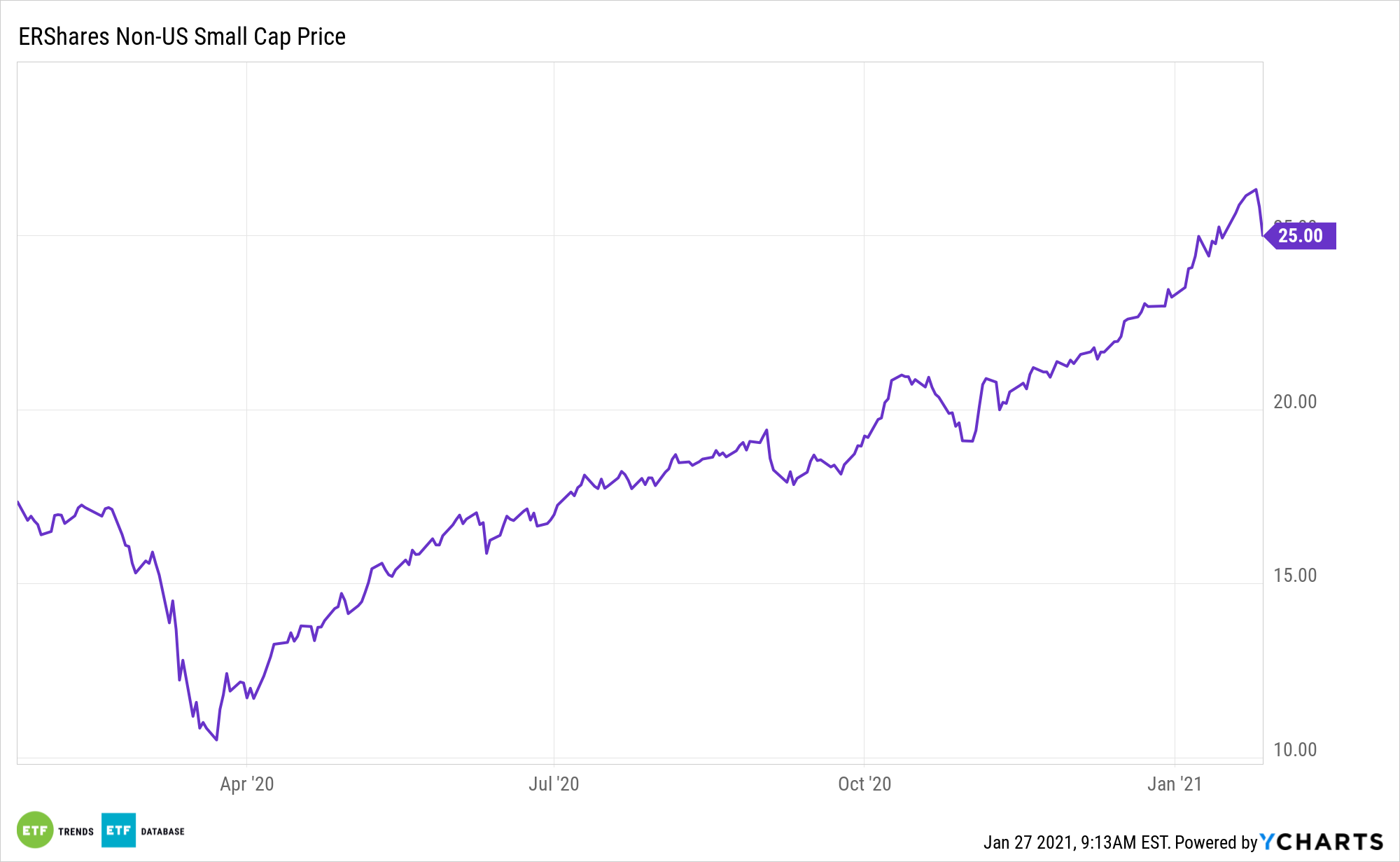U.S. small cap stocks are in a groove, a scenario benefiting exchange traded funds such as the ERShares International Equity ETF (NYSEARCA: ERSX). There are also compelling opportunities in international small cap equities.
That also benefits ERSX. The fund selects the most entrepreneurial, primarily Non-US Small Cap companies, that meet the thresholds embedded in its proprietary Entrepreneur Factor (EF). ERShares’ ETF delivers strong performance across a variety of investment strategies without disrupting investors’ underlying risk profile metrics. Their geographic diversity enables them to harness global advantages through additional returns associated with currency fluctuations, strategic geographic allocations, comparative trade imbalances, and relative supply/demand strengths.
Part of the case for ERSX is that domestic small caps are more richly valued than their ex-US counterparts.
“U.S. small-value stocks have made a nice run of late. Over the past six months, the Russell 2000 Value Index gained 44.2% through Jan. 21 versus 19.3% for the S&P 500,” writes Morningstar analyst Kevin McDevitt. “But small-value stocks still have a lot of ground to make up after being the worst-performing segment of the U.S. equity market over the trailing 10 and 15 years. This still makes the group a potential target for contrarian investors.”
Domestic vs. International Smalls Caps
Another perk investors find with ERSX is that international small caps tend have stronger balance sheets than their American rivals.
“Although foreign companies have increased their borrowing over the past five years, their debt levels are generally below those of their U.S. counterparts. This shows within the small-value subgroup as well. The foreign small/mid-value Morningstar Category had an average debt/capital ratio of 33.6%,” notes McDevitt.

International small caps are generally export-oriented, globally structured, innovative, and have a high to dominant share of a niche market, often one in which the U.S. counterparts don’t compete effectively.
“Meanwhile, the group’s average price multiples were lower than those of the Russell 2000 Value Index across the board. This owes in part to the fact that foreign small/mid-value stocks haven’t rallied to the same extent as their U.S. counterparts. The group has gained 27.6% over the past six months ended Jan. 21,” according to Morningstar.
For more on entrepreneurial strategies, visit our Entrepreneur ETF Channel.
The opinions and forecasts expressed herein are solely those of Tom Lydon, and may not actually come to pass. Information on this site should not be used or construed as an offer to sell, a solicitation of an offer to buy, or a recommendation for any product.

